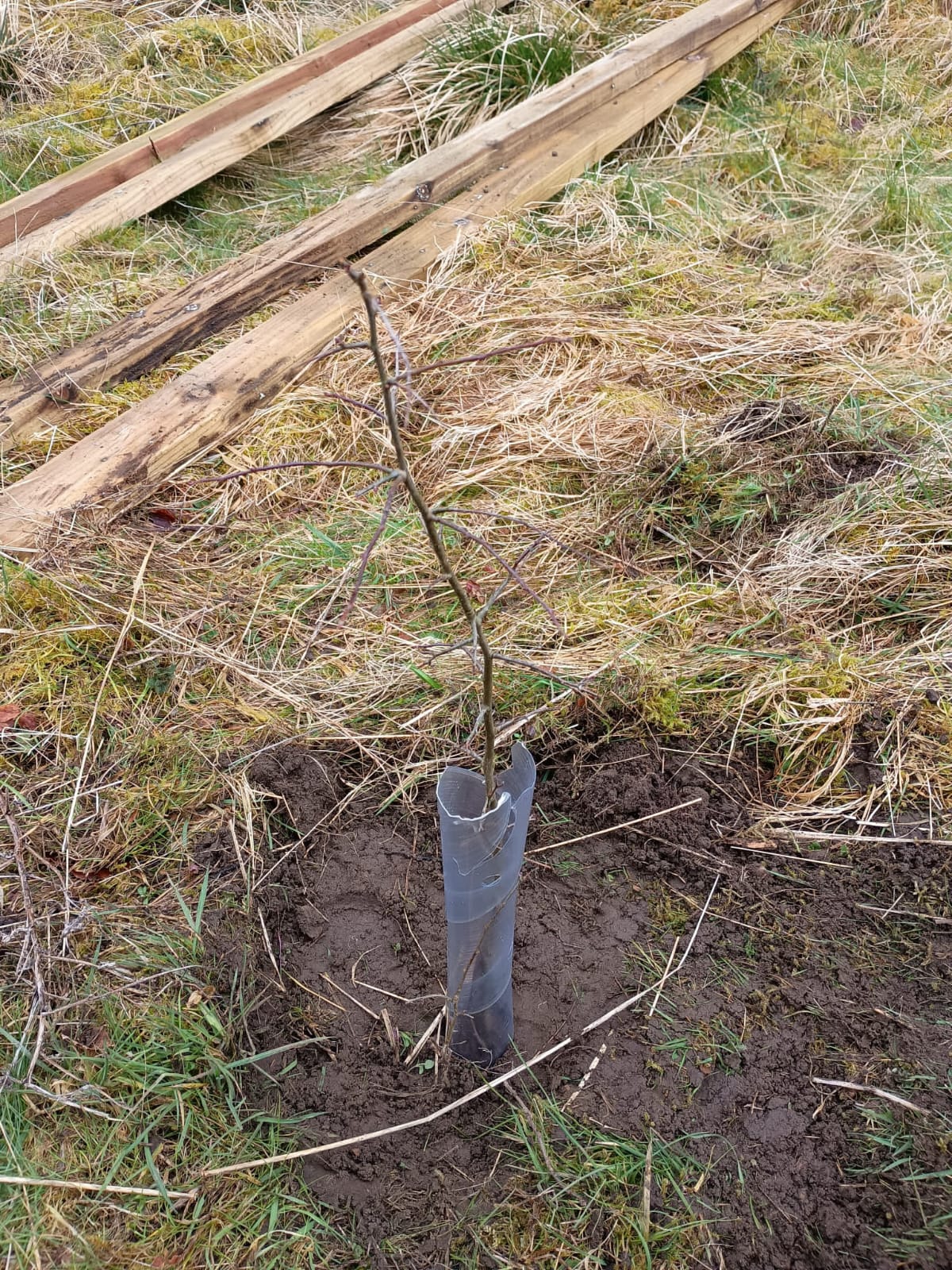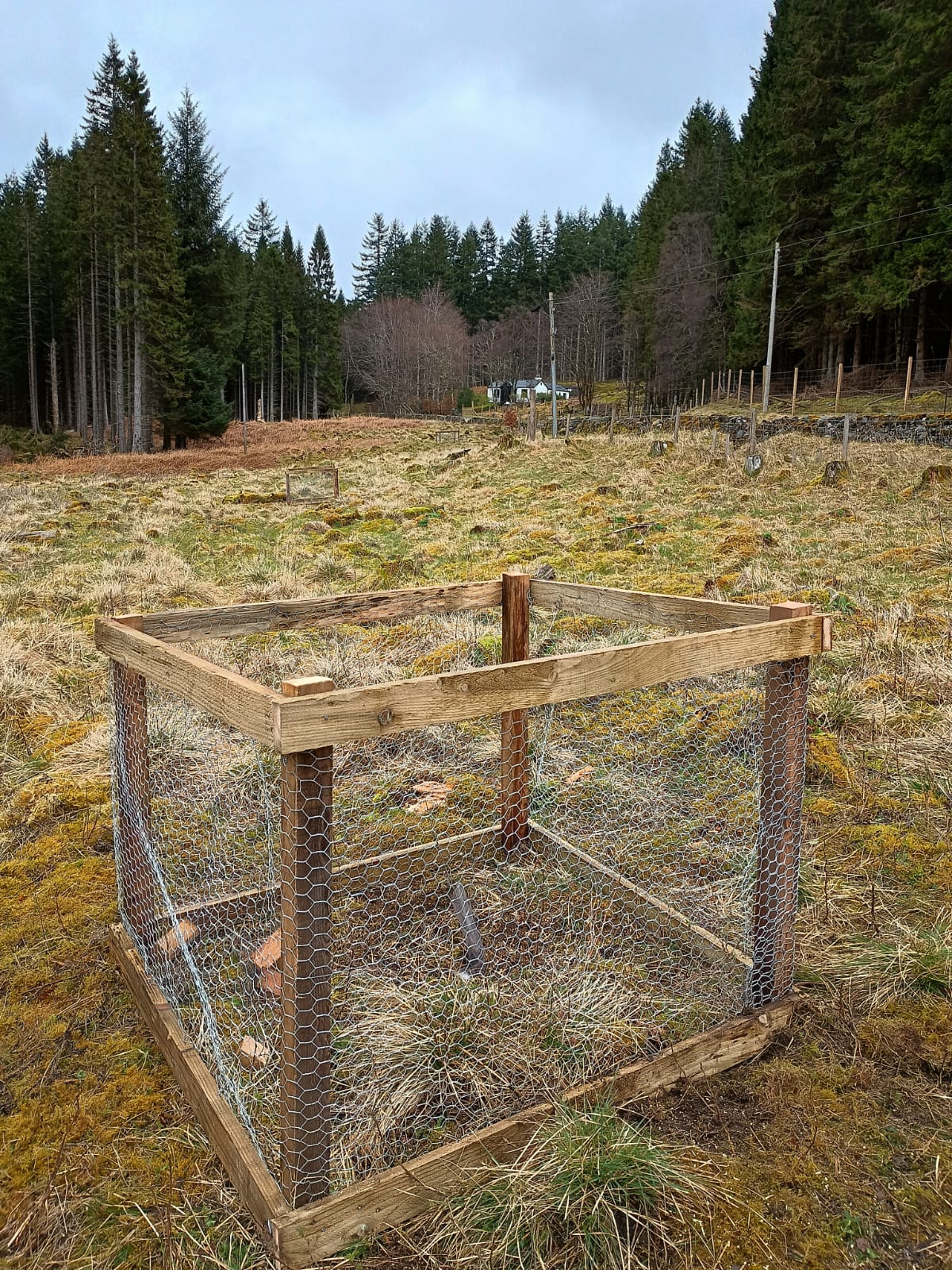Rare species helping to restore native woodland
Many don’t realise that Scotland is home to a native apple species, the wild apple (Malus sylvestris). Due to hybridisation, and historically being seen as unimportant the native wild apple is becoming an increasingly rare species.
However, recently our teams worked with Highland Perthshire Community Land Trust as part of our partnership with the Heart of Scotland Forest Partnership to plant native wild apple trees in Highland Perthshire.
Part of this partnership work involves providing practical experience for their Positive Destinations Rural Skills Training programme. The programme aims to bring young people into the land-based sector through a mixture of training and experience.

The traineeship runs for 20 weeks, with trainees attending one day a week to learn rural skills including certified training in first aid, chainsaws, brushcutters, ATVs. There is also non-certified training like fencing, drystone dyking, practical work experience and habitat monitoring, working alongside skilled countryside workers. The vast majority of the trainees then go on to working in the sector, including our own craftspeople.
One of the tasks this month was planting and protecting wild apples.
Wild apples grow sparsely and often in open woodlands. Ahead of planting our staff worked closely with Dr. Rick Worrell an ecologist and forester who specialises in this species. Together we grew genetically pure seedlings that could be planted in our forests. Our Environmental Forester Gareth Ventress, who worked closely on this project, said;
One of the best things about my job is the opportunity to work with, and learn from, some of the countries leading experts like Rick. Then to go on and make a real difference with the conservation of some of Scotland’s rarest and most threatened species.
To then be able to pass some of that knowledge on and help the trainees gain experience and skills to take into their future careers managing our countryside is awesome.
Working with the trainees, our staff planted the saplings in Lassintulloch Forest, between Lochs Tummel and Rannoch. Because wild apples like space, they were place around 40 metres a part, which is quite a difference to our usual planting of commercial crop which is usually around 1.8 metres.
In the future we want to use cattle to graze the area. The cattle will help break up the thick grass sward that has developed since clear-felling the area. They will also help to scarify the soil and help facilitate native tree seeds to germinate and naturally regenerate across the wider site, including the wild apple.

We decided to protect each tree with its own rabbit, cattle and deer proof post and rail enclosure. This will not only protect the wild apple trees but also encourages them to grow a more natural wide canopy and increase apple production.
With the opportunity to mix tree planting, fencing and ecological learning this was a great task for the trainees to work alongside our staff to help with rare species conservation work.
- The 'Last Ent of Affric' is no longer alone
- A82 felling reaches toughest challenge yet
- How we can help solitary bees